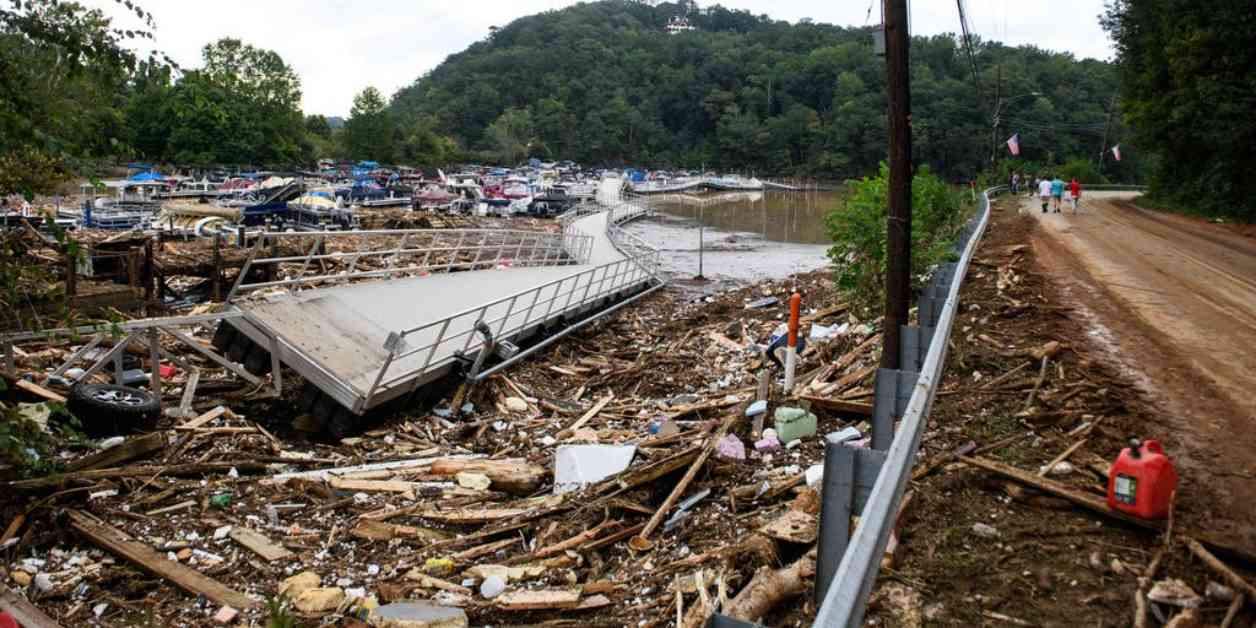Voters in the Southeastern parts of the United States may encounter new challenges when casting their ballots in the upcoming election due to the aftermath of Hurricanes Helene and Milton. These back-to-back disasters have triggered a wave of initiatives from states, political parties, and campaigns to facilitate voters’ access to polling stations and ensure that their votes are properly counted. The primary objective behind these efforts is to boost engagement and voter turnout in the 2024 presidential race, where candidates Kamala Harris and Donald Trump are currently in a tight race with less than a month left until Election Day.
In North Carolina, the focus has been on assisting displaced residents in reaching polling locations following the devastation caused by Hurricane Helene, a powerful Category 4 storm that struck the region last month, claiming over 220 lives and causing widespread destruction amounting to billions of dollars. The hardest-hit areas were concentrated in western North Carolina and Georgia, two battleground states that could have a significant impact on the outcome of the presidential election. Approximately 17% of registered voters in North Carolina reside in the counties that were declared disaster zones in the aftermath of Helene.
To address the challenges faced by voters in these areas, the North Carolina State Board of Elections recently approved changes for 13 counties where infrastructure, polling locations, and postal services are expected to be severely disrupted until Election Day. The state election officials have also collaborated with FEMA and North Carolina Emergency Management to deploy portable restrooms, generators, and trailers to support over 500 polling places in the western region of the state, which spans across 25 counties.
In response to the situation, the Trump campaign has indicated that it is exploring new strategies to transport voters to polling stations in hurricane-impacted states. Trump campaign press secretary Karoline Leavitt revealed in an interview with Fox News that the campaign is in communication with state and local election officials in the Southeast to assess the damage and ensure that voters have access to the ballot. The campaign is considering providing transportation for voters who need assistance in reaching the polls and ensuring that they can cast their votes.
In Florida, which bore the brunt of Hurricanes Helene and Milton, Governor Ron DeSantis issued an executive order granting election officials in severely affected counties the flexibility to make adjustments to election procedures, such as changing polling locations and allowing last-minute alterations to mail-in ballot addresses. However, in Georgia, Democrats faced a setback when a federal judge declined to order the state to reopen the voter registration process or extend the registration deadline following Hurricane Helene. This decision could have significant implications in Georgia, a crucial swing state that narrowly favored Biden in the 2020 election.
While it remains uncertain what actions, if any, the Harris campaign is taking to assist voters in North Carolina and other hurricane-impacted states, it is essential for all parties to prioritize voter access and participation in the democratic process. The response from campaign officials will play a vital role in ensuring that all eligible voters can exercise their right to vote in the upcoming election.
In conclusion, the challenges faced by hurricane-affected states highlight the importance of adapting election procedures to accommodate the needs of voters in times of crisis. By implementing innovative solutions and collaborating with local and state authorities, political campaigns can help mitigate the obstacles faced by voters and uphold the integrity of the electoral process.




